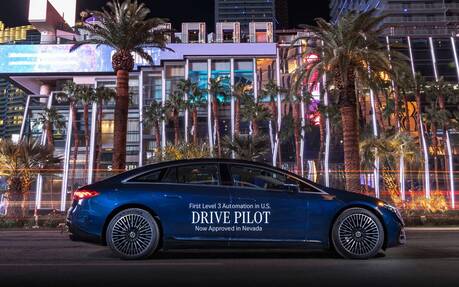British Columbia Bans Level 3-5 Self-Driving Vehicles
British Columbia has updated its Motor Vehicle Act to promote cleaner and active transportation and enhance safety for vulnerable road users, including cyclists and pedestrians. The changes came into effect April 5.
In particular, the regulations bring into force a prohibition against operation of fully automated self-driving vehicles (level 3 to 5) unless provincially authorized through a pilot project.
- Also: Self-Driving Car Opponents Have a New Weapon: Traffic Cones
- Also: Tesla Admits Full Self-Driving is Just Level-2 Autonomy
To be clear, no such vehicle is currently available in Canada. Those that are capable of level 1 or level 2 autonomous driving require drivers to keep their focus on the road and be ready to take over control at all times. Tesla’s Autopilot is one such system, even when enhanced with so-called “Full Self-Driving Capability,” which is a $16,000 option.

Under the law, highly automated self-driving vehicles cannot yet be driven on public roads in B.C., nor can highly automated self-driving features be used. Penalties can range from $368 and 3 driver penalty points up to a maximum of $2,000 and 6 months of imprisonment.
“Highly automated self-driving vehicles remain a new and emerging transportation technology. Further testing and policy development are necessary before Level 3 or higher automated vehicles are considered safe and can begin to be allowed for public use on B.C. roads,” the updated Motor Vehicle Act reads.

Driverless cars are currently allowed to operate in certain parts of California and Nevada, including the Waymo taxis that we tested in San Francisco last fall (pictured above). However, incidents involving autonomous vehicles from rival company Cruise, such as running into cars and pedestrians or blocking city streets, have forced state authorities to suspend the GM-owned startup’s licence indefinitely.
